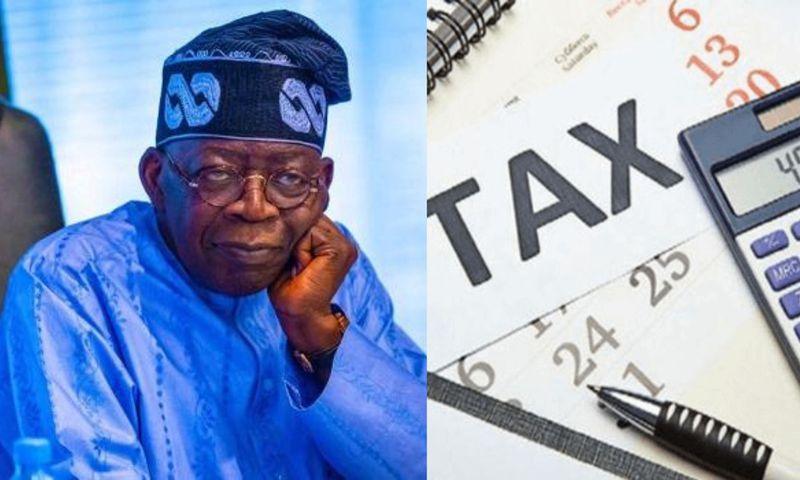In a move aimed at overhauling Nigeria’s tax system, President Bola Ahmed Tinubu has signed the long-anticipated Tax Reform Bills into law. The new legislation marks a turning point in how revenue is collected, who pays taxes, and where the funds go, all with direct implications for individuals, businesses, and government institutions.
Here’s a detailed breakdown of the new law and how it could impact your daily life and financial future:
1. FIRS Now Renamed Nigeria Revenue Service (NRS)
One of the most visible changes is the renaming of the Federal Inland Revenue Service (FIRS). It will now operate as the Nigeria Revenue Service (NRS). This rebranding aligns with broader institutional reforms to improve efficiency, transparency, and public trust in tax administration.
2. Centralized Revenue Collection System
In a move to streamline tax collection and eliminate duplication, the NRS has now been empowered to collect revenues previously handled by other agencies. These include the Nigeria Customs Service (NCS), Nigerian Upstream Petroleum Regulatory Commission (NUPRC), Nigerian Ports Authority (NPA), and Nigerian Maritime Administration and Safety Agency (NIMASA).
This means a unified and centralized approach to revenue generation, which is expected to reduce corruption and increase accountability.
3. Relief for Low-Income Earners
In a people-friendly gesture, the law now exempts individuals earning ₦800,000 or less per year from paying personal income tax. This provision aims to protect low-income workers and promote economic inclusion. If you fall within this bracket, your take-home pay is now fully yours; TAX FREE!
Another analyst has clarified that the monthly tax exemption threshold for an individual is N108,000 (N1.3 million annually) which is above N800,000.
4. Focused Tax on High-Income Earners
To balance the tax net, the new law places a 25% personal income tax rate on individuals earning above ₦50 million annually. This progressive tax structure ensures that the wealthy contribute a fairer share to national development.
5. Full Exemption for Small Businesses
Micro and small business owners can now breathe easier, as they are completely exempted from paying income tax under the new law. This move supports entrepreneurship and reduces financial pressure on start-ups and small enterprises, which form the backbone of Nigeria’s informal economy.
6. Corporate Tax Cut from 2026
To attract investment and improve the ease of doing business, the law introduces a reduction in Company Income Tax for medium and large firms from 30% to 25%, effective from 2026. This incentive is designed to stimulate economic growth and encourage companies to expand their operations in Nigeria.
7. VAT Relief on Essentials
The new tax law also provides Value Added Tax (VAT) exemptions on essential goods and services, including:
Food items
Medical services and pharmaceuticals
School fees
Electricity
This ensures that basic needs remain affordable, particularly for vulnerable populations.
Read also:
- Tinubu’s New Tax Law: Nigerians earning N250,000 or less monthly to be exempt from tax starting 2026
- Tinubu signs controversial tax reform bills into law amid northern opposition
- States to earn more as Senate approves new VAT sharing formula, retains 7.5% rate
8. No Increase in VAT or Corporate Tax (for Now)
While there have been fears of a tax hike, the government has maintained the status quo on VAT (7.5%) and company income tax (30%). The reforms focus on structure and coverage rather than raising existing tax rates.
9. New Development Levy Introduced
Perhaps one of the most innovative aspects of the reform is the introduction of a Development Levy ranging from 2% to 4%, targeted at high-income earners and corporations. The funds generated will go directly into strengthening critical national institutions such as:
NELFUND (Nigeria Education Loan Fund)
TETFund (Tertiary Education Trust Fund)
NITDA (National Information Technology Development Agency)
NASENI (National Agency for Science and Engineering Infrastructure)
What This Means for You
Whether you’re a salary earner, business owner, or corporate executive, this reform affects you. The overarching goal is to make taxation fairer, more transparent, and development-focused, while ensuring that wealthier individuals and companies shoulder more responsibility for national growth.
President Tinubu’s new tax reform is more than just a fiscal adjustment; it’s a strategic shift toward economic equity and efficiency. As implementation rolls out, Nigerians are encouraged to stay informed, adjust their financial plans, and take advantage of the reliefs and exemptions offered under this law.
